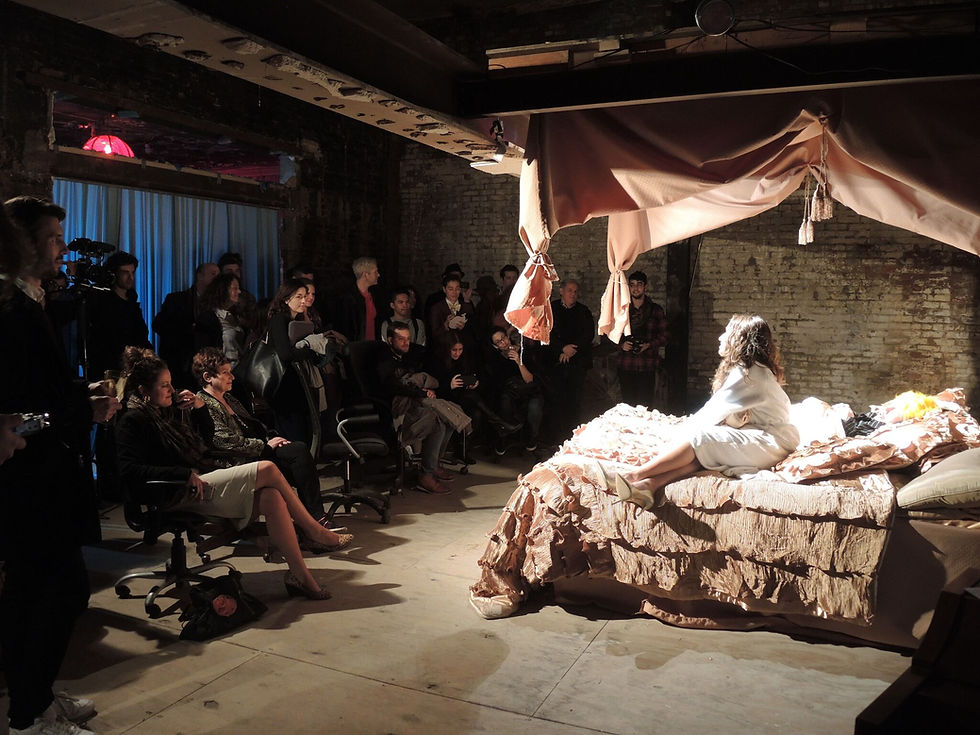Cokboy
for actor and orchestra
Scroll Down
Surreally evokes the experience of Eastern European immigrants in America…the music was notable for its pacing and the bold colors of the orchestration.
David Weininger The Boston Globe
ABOUT
Matti Kovler’s Cokboy is a highly personal setting of a highly personal, and also political, poem by the New York-born poet Jerome Rothenberg (b.1931). Rothenberg, who has also been an anthologist, translator, and anthropologist, included Cokboy in his collection Poland/1931. The premise is that of a Jew, narrating in the first person, finding himself among the American Indians (Rothenberg lived on a Seneca reservation for a time), a displaced Jew among a people whose culture has become displaced from around them. Between them mistrust and sympathy go hand in hand, the narrator blending the elements of his culture with that of the Indians: “silk of his prayershawl-bag beneath/cover of beaverskin above/savor of esrog fruit within/horn of mountaingoat between/feather of dove….” His “vot am i doink here,” the deliberately assumed Yiddish accent, is both comic put-on and expression of his insecurity. Kovler in his setting carries it a step further, incorporating very naturally an ancient Hassidic chant that adds texture to the stream-of-consciousness, multi-layered meaning and perspectives of the poem.
Musically the piece works with similar blending of materials and shifts of focus. The opening passages are aleatoric, asking the players to play almost randomly, creating an unsettled, fuzzy surface before the entry of the narrator and suggesting his unsettled state. Identifiable figures gradually coalesce, becoming melody and counterpoint. Following a return to aleatoric music a culmination, a strongly diatonic and sustained section linked to the words “the old man watches from the cliffs a city/overcome with light”—a great G major chord, marking a kind of false epiphany for the narrator. A gradual recapturing of the complexity of the opposing cultures of the poem, with the interpolated Hassidic melody, demands a less straightforward, but more satisfyingly realistic, musical conclusion.
Written by Robert Kirzinger

SCORING
DETAILS
PREMIERE
Chamber Orchestra Version
2 fl, 2 ob (ob 2/engl. hrn), 2 cl (Bs cl), 3 hns, 2 trmp, 2 trmb, t-ba, harp, p-no (cel), perc, str.
January 18, 2009
Jordan Hall, Boston
Boston Modern Orchestra Project
Gil Rose, conductor
Mátti Kovler, narration
Original text © Jerome Rothenberg
NEC Boston Modern Orchestra Project Competition, winner
ASCAP Morton Gould Young Composers Awards, winner
REVIEWS
The winning piece of the BMOP/NEC competition, Cokboy was a setting of Jerome Rothenberg’s poem and movingly captured the anxiety and placelessness of the immigrant transported to a new world and finding himself among other disenfranchised peoples. The orchestra provides a wandering backdrop to the poem’s narration, performed Saturday night by the piece’s composer Mátti Kovler. Tonal displacement predominates through much of the work, interrupted only by a G major chord corresponding to a vision of the sunrise and again when the music fades into a Hassidic delivery of Psalm 139 (“Where can I go from your Spirit?”). Overall, an intensely moving piece about immigrant experiences in America.
Sarah Canice Funke Suite 101





CONTACT
BOOKING | COMMISSIONING | PRESS INQUIRIES
Amanda Cooper, ALC Management
Email: amanda@alc-arts.com
Inquiries for ‘Here Comes Messiah’, ‘Ami & Tami’, ‘The Drumf & the Rhinegold’:
Floating Tower
Erin Simmons, producer
139 Jackson St. Suite 4B
Brooklyn NY 11211
tel: +1 469 826 0000
Mátti Kovler's scores and recordings are published exclusively by BarkolMusic [ASCAP] and Floating Tower Records.
Inquiries regarding all European engagements:
World Entertainment Company
Luca Ceretta, managing director
Király utca 56. 1. em 5
1068 Budapest
cell HU +36 3067 49980
cell ITA +39 329 472 1404
For Repertoire advice, commission inquiries and general information about scores and individual works please contact Mátti directly at






